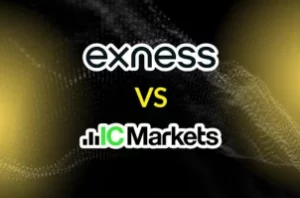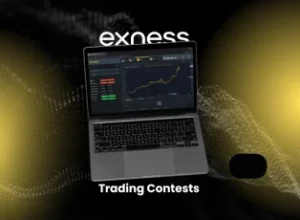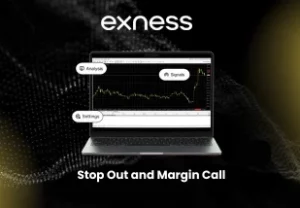Exness and eToro are two well-known trading platforms that cater to different types of traders with distinct features. Exness is recognized for its fast execution, competitive spreads, and flexibility in account types, offering a range of forex and CFD products. It is particularly favored by active traders and professionals due to its advanced trading tools and platforms like MetaTrader 4 and MetaTrader 5. On the other hand, eToro is widely known for its social trading features, allowing users to copy the trades of successful traders, making it ideal for beginners or those looking for an easy entry into the market. While eToro offers a user-friendly platform with a wide variety of assets, Exness excels in providing low-cost, high-speed trading options suited for more experienced traders.
Exness Overview
Exness was founded in 2008 and has grown to become a major forex and CFD broker. It offers competitive trading conditions, a wide range of instruments, and a solid reputation for reliable services. Exness provides access to forex, stocks, commodities, and cryptocurrencies with high leverage and tight spreads.
eToro Overview
eToro, established in 2007, is a global leader in social trading. It is famous for its CopyTrading feature, which allows traders to follow and copy the trades of more experienced investors. eToro offers a wide variety of financial instruments including forex, stocks, cryptocurrencies, and commodities, with a focus on social trading and user-friendly platforms.
Account Types
Exness and eToro offer different account types tailored to meet the needs of various traders. Exness provides a range of accounts such as Standard, Raw Spread, and Pro accounts, catering to both beginners and advanced traders, while eToro offers a simpler structure with a single account type, but also provides access to social trading and copy trading features for those interested in following experienced traders.
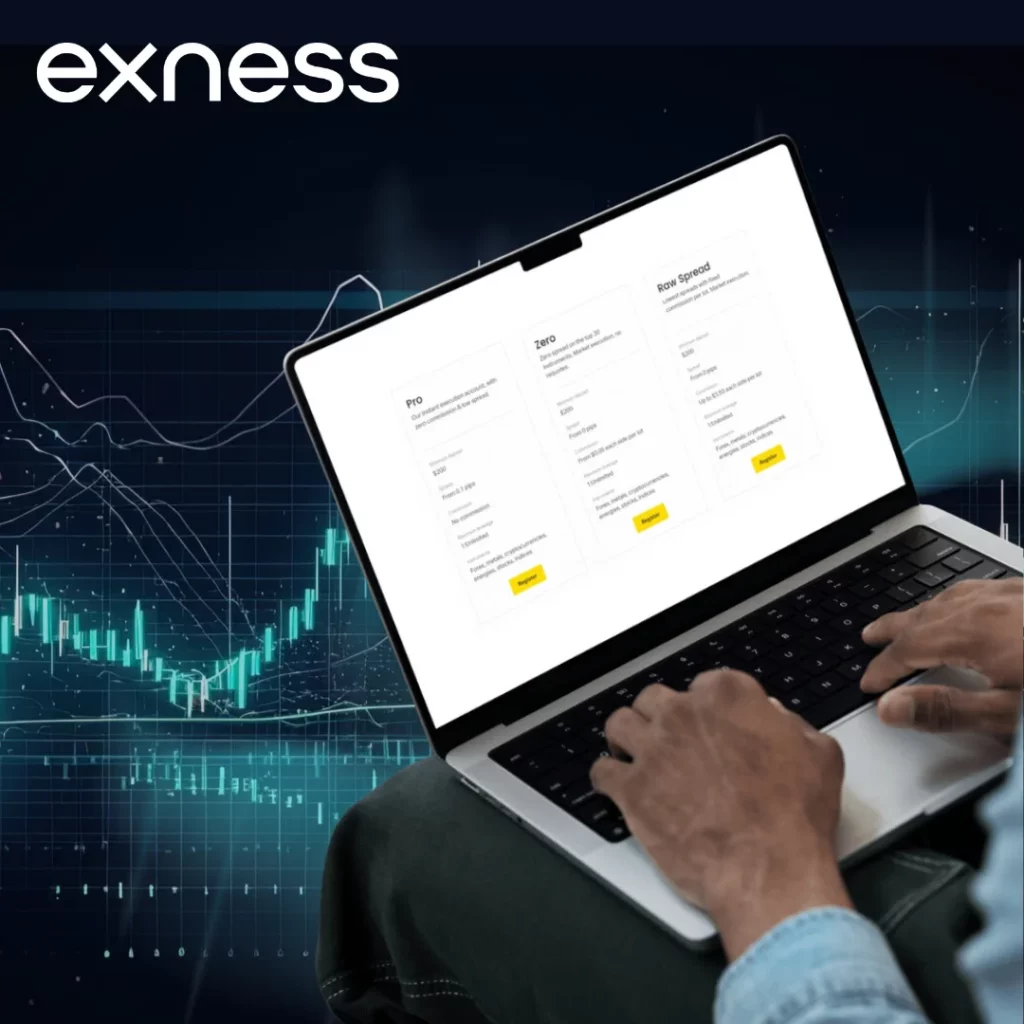
Exness Account Types
Exness offers a variety of accounts designed to suit different types of traders:
- Standard Accounts: Ideal for beginners, offering no commission but higher spreads.
- Standard Cent Accounts: Perfect for new traders with limited capital, allowing you to trade with cent denominations and smaller position sizes.
- Pro Accounts: Suitable for more experienced traders, offering lower spreads and lower commissions.
- Zero Accounts: Designed for professional traders, providing tight spreads near 0.0 pips with a commission on trades.
- Raw Spread Accounts: Offers raw spreads with a commission, aimed at professional traders looking for the tightest spreads.
eToro Account Types
eToro also offers multiple account types, including:
- Standard Account: The basic account for most traders.
- Islamic Account: A swap-free account for traders who follow Sharia law.
- Demo Account: Allows users to practice trading with virtual funds before engaging with real money.
eToro does not have as many account types as Exness, but its main strength lies in the social trading options it provides.
Trading Platforms
Both Exness and eToro offer powerful trading platforms, but they cater to different types of traders. Exness provides MetaTrader 4 (MT4) and MetaTrader 5 (MT5), popular platforms that offer advanced charting tools, automated trading with Expert Advisors, and the ability to trade multiple asset classes. eToro, on the other hand, offers its own user-friendly platform with social trading features, allowing traders to copy the strategies of successful investors, making it ideal for beginners and those interested in social investing.
Exness Trading Platforms
Exness supports some of the most popular trading platforms:
- MetaTrader 4 (MT4): MT4 is a classic and widely used platform in the forex community. It provides a range of technical analysis tools, customizable charts, and Expert Advisors (EAs) for automated trading. MT4 is known for its reliability, simplicity, and effectiveness in managing forex and CFD trades.
- MetaTrader 5 (MT5): MT5 is an upgraded version of MT4 with enhanced features, including additional timeframes, advanced charting tools, and the ability to trade a wider range of instruments such as stocks, indices, and commodities. It’s ideal for traders who need more comprehensive tools for different asset classes.
- WebTerminal: For traders who prefer not to install any software, Exness offers a WebTerminal, which is a browser-based platform. It provides access to trading accounts from any device with internet access, offering the same core trading functionalities as the downloadable platforms.
- Exness Mobile App: The Exness mobile app allows traders to manage their accounts and execute trades seamlessly on-the-go. Available for both iOS and Android devices, it provides a smooth, intuitive experience for monitoring the markets, placing orders, and using trading tools like charting, analysis, and market execution. The app also supports features like social trading, allowing traders to follow and copy successful strategies from others directly from their mobile devices.
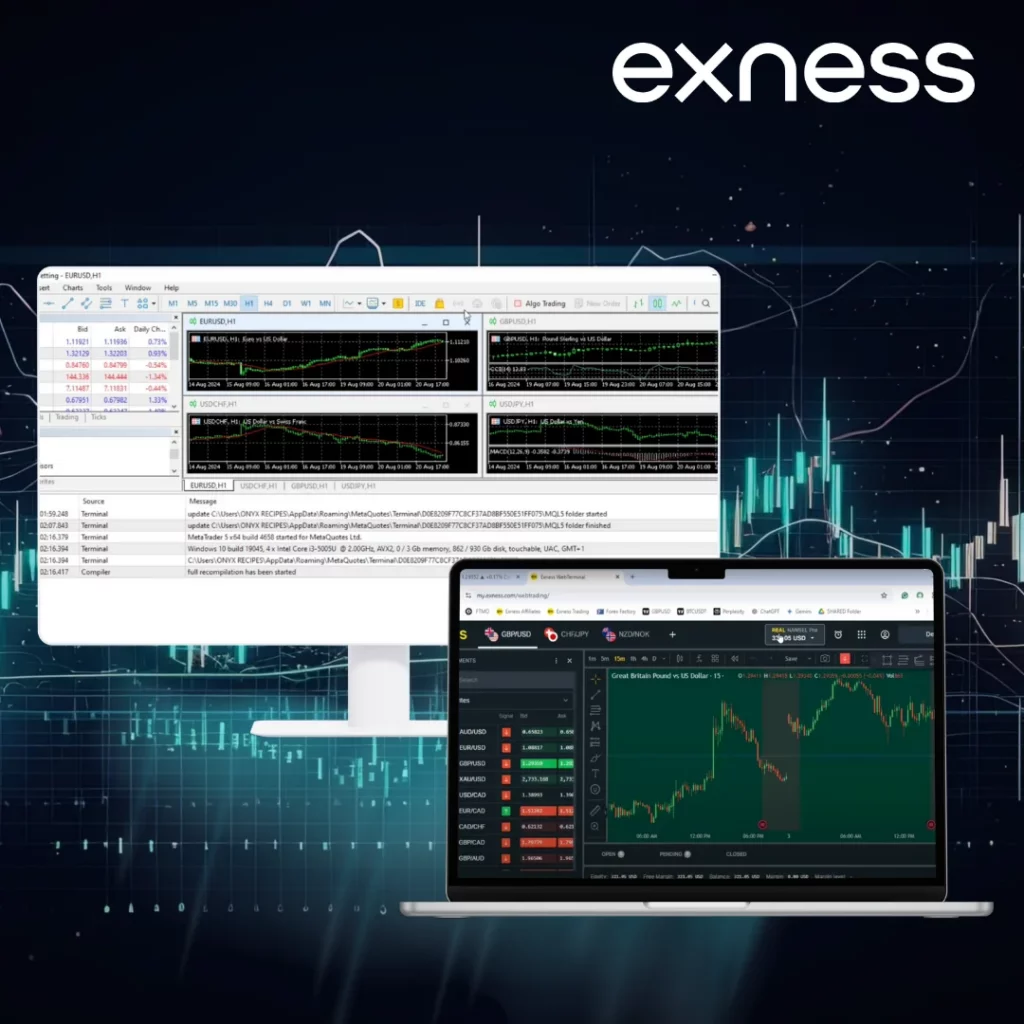
eToro Trading Platform
eToro’s platform is known for its simplicity and accessibility, particularly for beginner traders. Key features include:
- Social Trading: A unique feature that allows traders to follow other traders and copy their trades.
- Mobile and Web Platforms: eToro offers a mobile app and a web-based platform, making it easy for traders to manage their accounts and trades from any device.
- CopyTrading: A feature that allows users to replicate the trades of top investors automatically.
eToro’s platform is highly focused on social and copy trading, which sets it apart from Exness.
Spreads and Fees
Exness Spreads and Fees
Exness is known for offering low spreads and competitive commission rates. On a Standard Account, spreads are relatively higher, while on Pro and Zero accounts, spreads can go as low as 0.0 pips with a commission. Exness does not charge fees for most deposits and withdrawals, but there may be a fee for some payment methods.
eToro Spreads and Fees
eToro also offers competitive spreads but tends to be higher than Exness on certain instruments, especially with stock CFDs. eToro charges no commission for stock trading, but it does apply a spread fee, which can vary depending on the market. It’s important to note that eToro’s fees can be higher for cryptocurrencies and less liquid markets. eToro charges a withdrawal fee of $5 for each transaction, which is a cost to consider if you’re frequently withdrawing funds.
Leverage
Exness Leverage
Exness offers high leverage options, up to 1:2000 depending on the asset and account type. This allows traders to control larger positions with a smaller amount of capital. However, it’s important to be cautious with high leverage, as it can lead to significant losses if not managed properly.
eToro Leverage
eToro offers lower leverage than Exness, with a maximum leverage of 1:30 for retail traders in most regions due to regulatory restrictions. However, professional traders can apply for higher leverage, up to 1:400, subject to certain conditions. The lower leverage on eToro is more restrictive for those seeking higher exposure to the market.
Regulation and Safety
When it comes to regulation and safety, both Exness and eToro are well-regulated by top financial authorities, ensuring secure trading environments for their users. Exness is licensed by authorities such as the CySEC, FCA, and the FSA, providing high standards of security and compliance for its global client base. Similarly, eToro is regulated by major bodies, including the FCA, ASIC, and CySEC, offering strong protection for its users while adhering to strict financial regulations in various regions.
Exness Regulation
Exness is regulated by multiple authorities, including:
- Cyprus Securities and Exchange Commission (CySEC)
- Financial Conduct Authority (FCA)
- Seychelles Financial Services Authority (FSA)
- Mauritius Financial Services Commission (FSC)
Exness is considered a safe broker with a strong regulatory framework, providing protection for traders’ funds through multiple regulatory licenses.
eToro Regulation
eToro is regulated in several jurisdictions, including:
- CySEC (Cyprus)
- FCA (UK)
- ASIC (Australia)
- FinCEN (US)
eToro is well-regulated and offers a safe trading environment for traders, especially in Europe and the UK.
Social Trading and Copy Trading
Exness Social Trading
Exness offers social trading features that allow users to follow and learn from experienced traders on the platform. Through their social trading section, traders can browse profiles of successful traders, view their trading history, and observe their strategies in real-time. While not as extensive as dedicated social trading platforms, Exness provides these features alongside their core trading services. The platform also supports Expert Advisors (EAs) and automated trading through MT4 and MT5 for traders who prefer algorithmic strategies.
eToro Social Trading
eToro is renowned for its social trading features. The CopyTrading functionality allows users to follow and copy the trades of other successful traders. This feature is highly popular with beginners and those who prefer to take a passive role in trading. eToro also provides a CopyPortfolio feature, which allows users to invest in managed portfolios created by eToro’s team.
Deposit and Withdrawal Methods
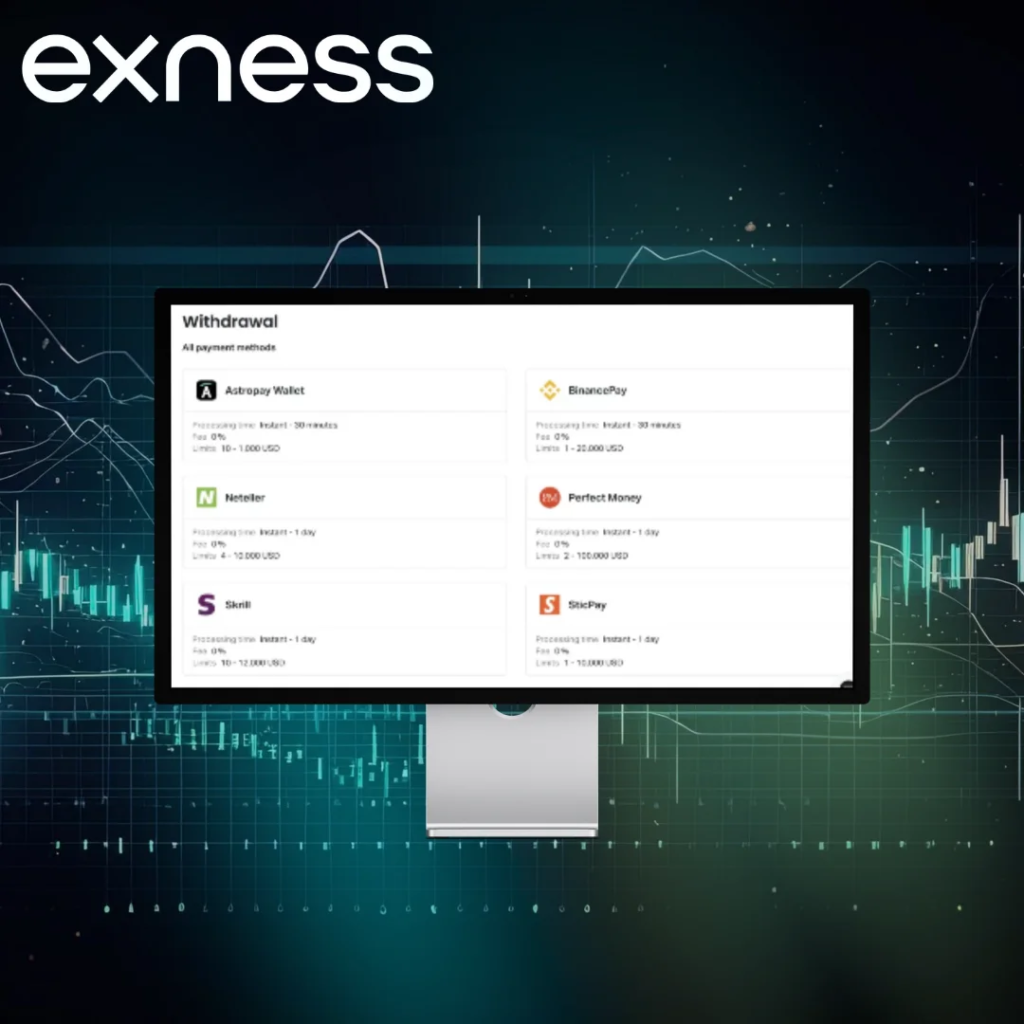
Exness Deposit and Withdrawal Methods
Exness offers a wide range of deposit and withdrawal options to ensure that traders can easily fund their accounts and access their earnings. These methods cater to different preferences and provide flexibility for both local and international transactions.
Exness offers a variety of payment methods, including:
- Bank Transfers
- Credit/Debit Cards
- E-wallets
- Cryptocurrencies
Exness also supports instant withdrawals for most payment methods, making it convenient for traders to access their funds quickly. This ensures that traders can efficiently manage their funds and maintain smooth trading operations.
eToro Deposit and Withdrawal Methods
eToro provides a range of deposit and withdrawal options, giving traders flexibility to fund their accounts and withdraw funds through their preferred methods. These payment options cater to global traders, ensuring ease of access to trading funds.
eToro supports various payment methods including:
- Bank Transfers
- Credit/Debit Cards
- E-wallets (Skrill, Neteller, PayPal)
However, eToro charges a $5 withdrawal fee, and withdrawals typically take 1–3 business days to process. The minimum deposit required on eToro is $200, which is relatively higher than Exness’s minimum deposit of $1 for some accounts.
Conclusion
Both Exness and eToro have their strengths and weaknesses, and the choice between them will depend on your trading style and preferences. Exness is better suited for active traders looking for low spreads and high leverage, while eToro is a great choice for beginners and those interested in social trading. Consider the factors that matter most to you, such as fees, platform features, and account types, to decide which broker fits your trading needs best.
FAQ: Exness vs eToro
Which broker offers lower spreads?
Exness generally offers lower spreads compared to eToro, especially for professional accounts like Zero and Raw Spread accounts.

